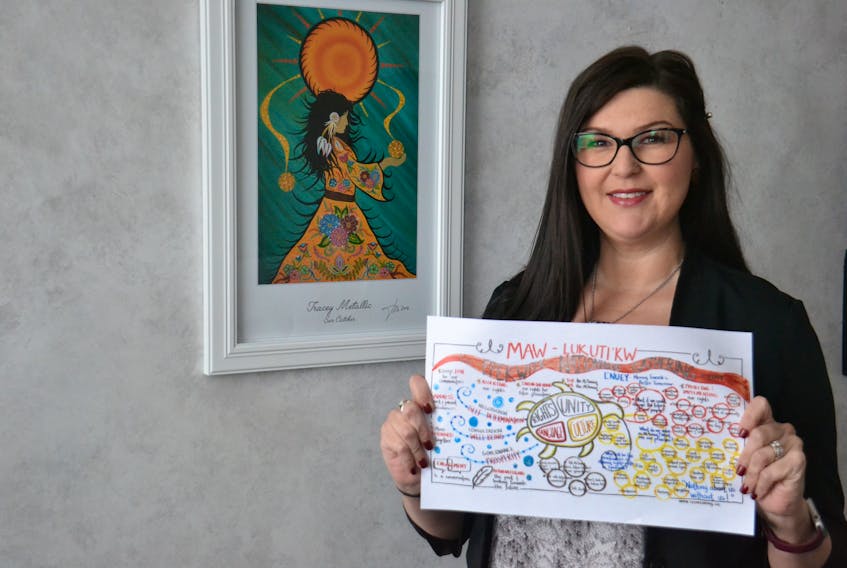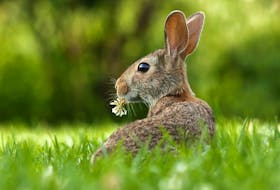Let me ask you a question ... where are you from? As an Islander, you might say P.E.I., but before that, your ancestors are from where? And where did their ancestors come from? For Mi'kmaq the answer is easy, we are from right here, going back through the ancestors over 12,000 years. Before the wheel was invented, before Egyptians built pyramids, before Romans began their Republic, we were here. We were building stone fish weirs, leaving traces of long-favoured seasonal campsites, and not just surviving but thriving in this territory called Mi'kma’ki. We were here, and we are still here.
Throughout this territory we traded, hunted, fished and gathered, using birchbark canoes, snowshoes and toboggans to travel. Seasonally, we set up wikuom, our homes, in family or community groups, ensuring the whole was able to survive by working and living together, and by taking care of the sick and the elderly. Our chiefs and elders provided council; our extended families taught their skills to youth. We still do this, though in a more modern way. We were here, and we are still here.
When you came, we welcomed you; shared the hunt, the medicines, our way of life and even our lives as some inter-married. You shared with us your way of life — your religion, your language, your occupation of our resource areas and your diseases. Through it all we managed to maintain some of our traditional way of life, though we hunted now more for furs than food. We became allies with the French, entered into peace and friendship treaties with the English; we were never conquered, never once surrendered, gave up or ceded our land. We were here, and we are still here. And this is still our land.
We were here, we survived, and we are still here.
When the dust settled, the British occupied all our land. Game became scarce. Access to traditional areas, where we had for thousands of years freely hunted, fished, camped and gathered, were now blocked off by the numerous English settlements. Our lives changed and evolved along with the era as we turned to craftmanship to maintain our livelihood and our lives. In many cases we sold items from door-to-door, as we travelled to different resource harvesting campsites. Today, some of us still harvest resources for food, for medicines, for ceremonies. We were here, and we are still here.
Governments enacted many acts, including the infamous act to amend and consolidate the laws respecting Indians, the Indian Act, to squash our identity, our dignity, and our freedoms. Reserves, those tiny remaining plots of our land, were created to put us “out of sight and out of mind.” Residential schools were created to “kill the Indian in the child.” All bringing with them new sets of appalling circumstances. We were here, we survived, and we are still here.
We signed up; did we ever sign up. We had the highest number of people serving in both World War I and World War II than any other community on P.E.I. All this to fight and die for a country that did not consider us to be citizens. And we kept serving – the war in Korea, the Vietnam War, up to today; we proudly have veterans from these conflicts, as well as peacetime. Our culture, our language, our celebrations are no longer outlawed, but the battles are ongoing. In the courtroom, we have gained back some rights that should not have been taken in the first place, but the fight is not over. We are walking steadily and determinedly on the path toward nationhood. We were here, and we are still here.
Reconciliation begins with education. Together, we stand strong.
Jenene Wooldridge, of Kuntal Kwesawe’kl (Rocky Point), Epekwitk, is executive director of L'nuey, an initiative focused on protecting, preserving, and implementing the constitutionally entrenched rights of the Mi’kmaq of Prince Edward Island. Aboriginal Awareness Week (May 19-22) has been recognized and celebrated across Canada since 1992 as an opportunity to create greater public awareness of the role of Indigenous People across the country.









